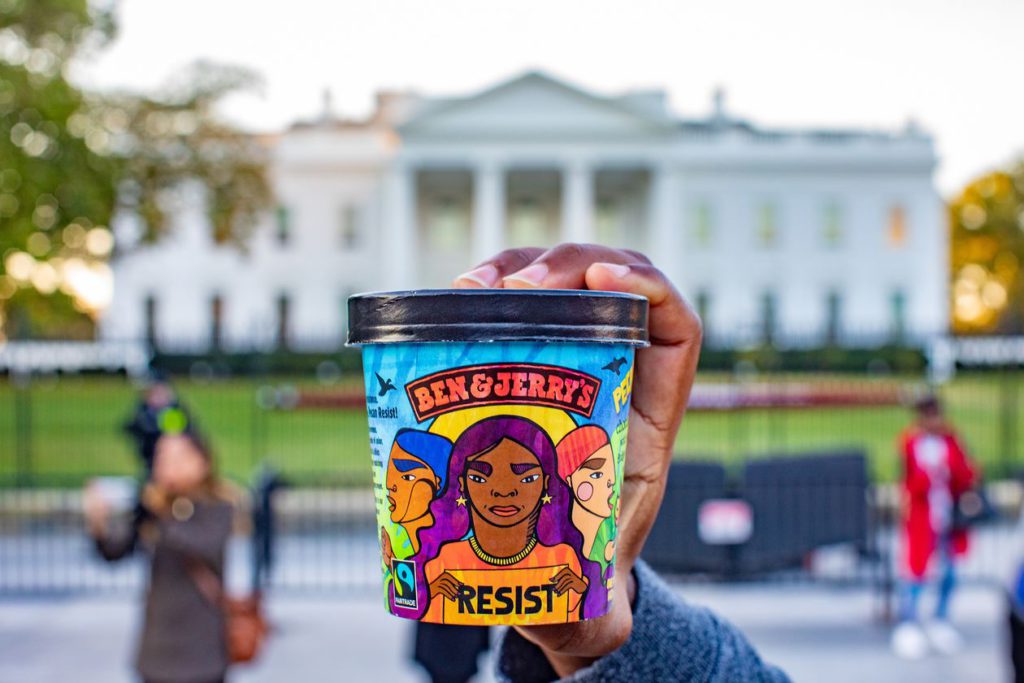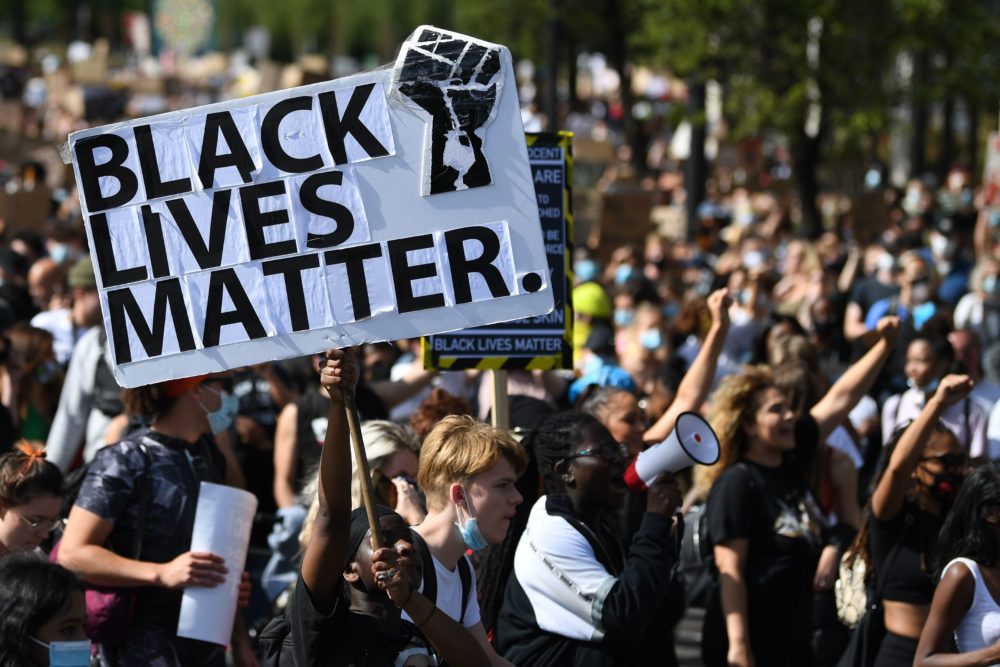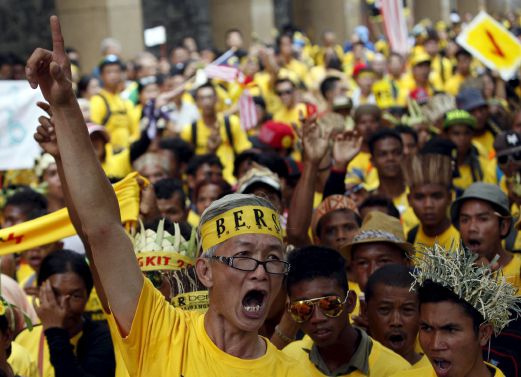There is a distinction between corporate social responsibility and activism in business that needs to be noted. Corporate social responsibility – CSR – is when a business either operates in a way that is in the best interest of not just their shareholders but their stakeholders at large or when a business has a variety of programmes or charitable organisations that they donate to in order to support the community. It can be intrinsic to their business practices or it can exist in addition to the more traditional ways of running a business. Either way, it can be categorised under CSR. Activism in business on the other hand is when a business publicly shows their solidarity with a certain social movement ‘aimed at building awareness about a particular issue while also promoting a positive corporate message’ (the conversation). It is when businesses take clear stances on these sometimes challenging and polarising issues. It can also work in a way to brand the company in favour of public opinion but depending on the stance they take, it can garner some negative feedback from the public.
A great example we often turn to is Ben & Jerry’s – a gold star in social responsibility, Ben & Jerry’s continue to set the bar on how to approach their community in a conscious and caring way. Putting aside their business practices, Ben & Jerry’s are not afraid to take a stand for the things they believe in. They unapologetically create ice-cream flavors rooted in activism with design to match, they march with climate change activists and continue to advocate for responsible business practices within Unilever. These beliefs and standards are the heart of the company; with Ben and Jerry themselves literally protesting and getting arrested at various rallies. Customers choose their brand over others not only because they have a great product, but also because they share the same values.

Ben & Jerry’s doesn’t shy away from the hard conversation; after the wrongful and inhumane murder of George Floyd, they didn’t choose the easy route of solidarity by posting a black square on Instagram. Rather, they released a lengthy statement calling for the dismantling of white supremacy and addressing the issue head on. It is jarring to see a company that most associate with light-hearted sweet treats get so serious and so real about these complicated, historical and difficult issues. No one expects an ice-cream company to take a clear, hard stance – but if they are willing to stand up for what’s right, why not the other companies? Why didn’t we see this level of activism from brands across the board?
The Music Industry
After pressure from both artists and the public, we saw big record labels put a lot of money into the cause. Warner Music pledged $100million, Sony Music matched that amount, Universal Music pledged $15million and after an employee publicly shamed them for not contributing, Spotify pledged $10million. Although this is a significant amount of money, it is a drop in the bucket of what these companies make. For years and years, production houses have profited and benefitted from black artists, but when the time came to stand up for a cause that directly affects the clients in which millions are made from, they did the bare minimum. Donating money to causes does help, but when you are the benchmark of an industry it is your responsibility to take care of the community you often profit from. Structural changes and business policies are what they really need to address. Giving your company a hard look and owning the prejudices and inequality you allow to thrive is how you truly advocate for a cause. Donating big money and making empty promises is a way to appear on the right side of history without actually putting in the work.

It can be argued that it is easy to be political when you’re an ice-cream company vs a huge music corporation; but that is exactly the point. Activism isn’t something that is easy, it is uncomfortable and difficult. It is pushing the boundaries that are so rooted in the structures that surround us. It’s never inappropriate to stand up for what’s right and through this corporate climate of always trying to stay neutral, companies may lose favour with consumers who are carefully observing.
Aside from recent events, over the past few years we have seen brands becoming increasingly political. Brands are well aware that they can no longer sit silently but shallow participation will only get you so far. As time carries on, consumers will not tolerate social media campaigns and one-off donations. They want to see structural change, representation in the board of directors and corporate practices that promote activism in its nature. This is only the beginning and if companies do not dive in deep and take a hard look at their policies, more and more consumers will opt out of their businesses.
In Malaysia, activism looks a lot different than it does in the West. We don’t have the same freedom that they do to say exactly what we feel – freedom of speech just doesn’t exist to that extent in our country. When we look back on one of the biggest and more popularised movements – the Bersih rallies that happened from 2007 aimed at ending the historically corrupt elections, there was zero public support from corporations and businesses.
They were afraid.
They were afraid of alienating the majority of the population.
They were afraid of how the government would respond and reprimand them.
They were afraid of what would happen of what would happen to their brand.
In 2007, this lack of private-sector support could be tolerated, understood even. The world we lived in then was much different than the world we live in now. Social media had not yet come about and fear-based politics were the main tactic of the government. But in 2020, when Malaysia has been given freedom of the press and more freedom of speech than ever before, why do companies still refuse to take a firm stance on the issues our nation faces?

Around the same time that the Black Lives Matter hashtag was trending on social media, the issue of police brutality amongst Indians in Malaysia was brought to light. Mangai Balasegaram wrote in The Star, about how Malaysian Indians “account for almost one in four deaths in police custody, despite making up only 7% of the population”. It is a shocking fact, most of us didn’t even know that this was an issue in our country. More and more stories came to light on social media and people started to educate themselves, sharing stories and opinions across their platforms. It is not a straight-line parallel to what happens in America, but it sure is close. Despite this, we yet again saw no companies sharing support on this matter. NGOs and non-profits were the only ones taking it upon themselves to disseminate the information to the public.
One company that tried to foster a more light-hearted “One Malaysia” sentiment was Cadbury, but they failed to include a single Indian person in their ad aimed at celebrating everyday Malaysians. It is almost comical that in their efforts to bring about some positivity in these trying times, they left out an entire community and the injustices that they faced. Considering it was the main topic of conversation amongst the socially aware population. But it is the perfect metaphor to how business activism in Malaysia has been practiced – semi-well intentioned, badly executed and always erring on the side of neutrality.
Malaysia has a long way to go in terms of activism in business, but what the past year has taught us is that more and more of the community is becoming increasingly socially-minded. It is not just a Western concept but one that is only growing in need and popularity in Malaysia as well. We cannot predict what the future will bring us – none of us were prepared for the upheaval of daily life from Covid-19 or that the outrage from George Floyd’s murder would lead us all the way on the other side of the world to re-examine the treatment of our own people. What we can predict is that if corporations stick to their classical ways of operations and do not take a stand where a stand is necessary, they will lose favour with the growing population of conscious consumers. But will they grow obsolete?
What do you think?











